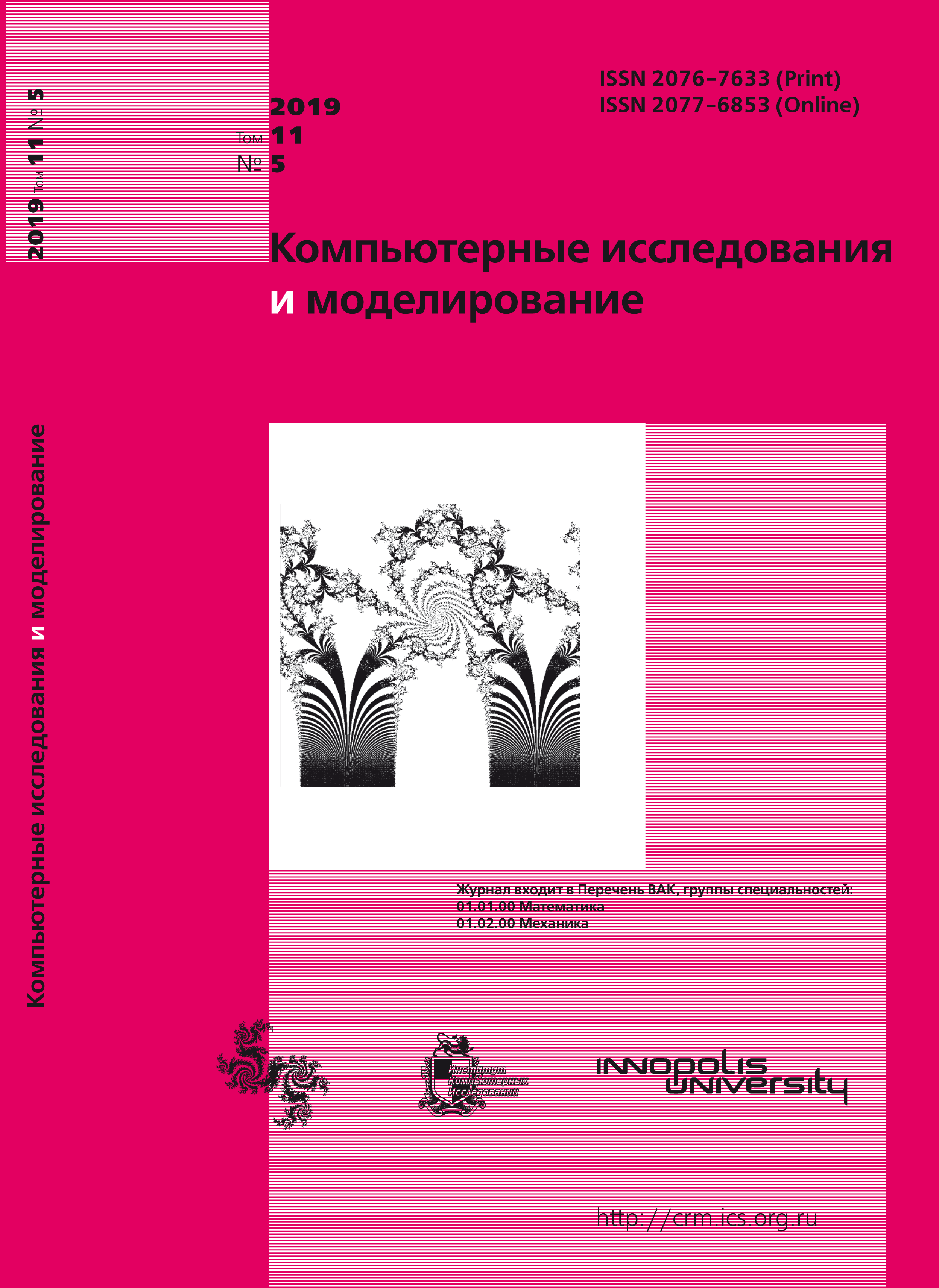All issues
- 2025 Vol. 17
- 2024 Vol. 16
- 2023 Vol. 15
- 2022 Vol. 14
- 2021 Vol. 13
- 2020 Vol. 12
- 2019 Vol. 11
- 2018 Vol. 10
- 2017 Vol. 9
- 2016 Vol. 8
- 2015 Vol. 7
- 2014 Vol. 6
- 2013 Vol. 5
- 2012 Vol. 4
- 2011 Vol. 3
- 2010 Vol. 2
- 2009 Vol. 1
Stochastic model of voter dynamics in online media
 pdf (347K)
pdf (347K)
In the present article we explore the process of changing the level of approval of a political leader under the influence of the processes taking place in online platforms (social networks, forums, etc.). The driver of these changes is the interaction of users, through which they can exchange opinions with each other and formulate their position in relation to the political leader. In addition to interpersonal interaction, we will consider such factors as the information impact, expressed in the creation of an information flow with a given power and polarity (positive or negative, in the context of influencing the image of a political leader), as well as the presence of a group of agents (opinion leaders), supporting the leader, or, conversely, negatively affecting its representation in the media space.
The mathematical basis of the presented research is the Kirman model, which has its roots in biology and initially found its application in economics. Within the framework of this model it is considered that each user is in one of the two possible states, and a Markov jump process describing transitions between these states is given. For the problem under consideration, these states are 0 or 1, depending on whether a particular agent is a supporter of a political leader or not. For further research, we find its diffusional approximation, known as the Jacoby process. With the help of spectral decomposition for the infinitesimal operator of this process we have an opportunity to find an analytical representation for the transition probability density.
Analyzing the probabilities obtained in this way, we can assess the influence of individual factors of the model: the power and direction of the information flow, available to online users and relevant to the tasks of rating formation, as well as the number of supporters or opponents of the politician. Next, using the found eigenfunctions and eigenvalues, we derive expressions for the evaluation of conditional mathematical expectations of a politician’s rating, which can serve as a basis for building forecasts that are important for the formation of a strategy of representing a political leader in the online environment.
Copyright © 2019 Svetlov K.V., Ivanov S.A.
Indexed in Scopus
Full-text version of the journal is also available on the web site of the scientific electronic library eLIBRARY.RU
The journal is included in the Russian Science Citation Index
The journal is included in the RSCI
International Interdisciplinary Conference "Mathematics. Computing. Education"






